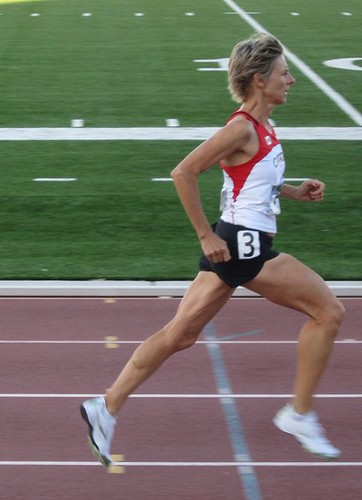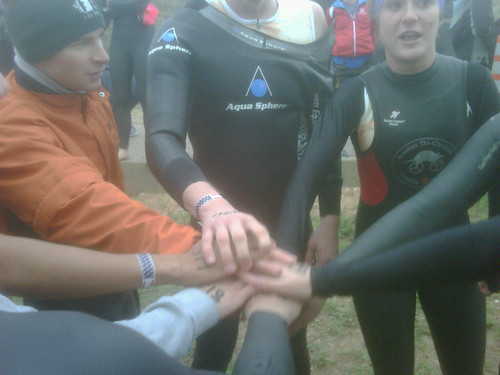 This is the fourth in a series of RunSmart videos. The series is on-going, with a new video released on a biweekly or monthly basis. These videos complement the material presented in the book “RunSmart: A Comprehensive Approach To Injury-Free Running”. The full series of videos can be found here. A transcription of the video will also be available with each post.
This is the fourth in a series of RunSmart videos. The series is on-going, with a new video released on a biweekly or monthly basis. These videos complement the material presented in the book “RunSmart: A Comprehensive Approach To Injury-Free Running”. The full series of videos can be found here. A transcription of the video will also be available with each post.
For those of you that are interested in a more interactive learning environment, consider attending a RunSmart Level One, Level Two, or Level Three program. Level One focuses on Principles, Level Two on Performance and Training Program Development, and Level Three on Physiotherapy and Running Injury Recovery.
In this video, I will discuss the first key element to running mechanics: erect posture. There are a some simple verbal cues that can foster an improvement in your running mechanics via alterations in posture.
I hope you enjoy the video series. If you would like me to address any specific aspect of the RunSmart approach, drop me an email or add a comment to this article.
 If you were to take a tour through any number of physical therapy clinics or chiropractic offices in this country, you would be amazed to find a startling trend. Pull out any number of patient charts. Pull out their corresponding billing slips, or whatever financial information is submitted to the insurance company. Compare the two.
If you were to take a tour through any number of physical therapy clinics or chiropractic offices in this country, you would be amazed to find a startling trend. Pull out any number of patient charts. Pull out their corresponding billing slips, or whatever financial information is submitted to the insurance company. Compare the two.
It is amazing how many treatments will take exactly 8 minutes. Soft tissue massage? 8 minutes. Treadmill running? 8 minutes there too. Strengthening exercises? Wow, imagine this, 8 minutes.
Is 8:00 the exciting new, super-special parameter for treatment these days? Or is there something else that drives all of this?
 Athletes are always looking to optimize their training. Student athletes are no different. But the demands on the student athlete may be very different above and beyond the actual imposed training demands.
Athletes are always looking to optimize their training. Student athletes are no different. But the demands on the student athlete may be very different above and beyond the actual imposed training demands.
One thing that serves as a positive: student athletes tend to be highly motivated to train. They will train, and they will train hard. And let’s face it – students are already in an environment which requires a high level of motivation to succeed academically.
Intense academic coursework places a high demand on the central nervous system. Students can be stressed by those demands, and may not have good strategies to alleviate the stressors functionally. If they are active, they may use training sessions as a means of stress relief.
Recovery-Centered Training proposes that training is only as good as the athlete’s ability to recover from and adapt to the training session(s). This is where the student athlete can run into difficulties.
 There have been a lot of crazy options floated in the health care world about ways to decrease costs, increase treatment adherence, and the like. There have also been a lot of crazy paranoid ideas put forth, including the legendary “comparative effectiveness equals death panels” diatribe.
There have been a lot of crazy options floated in the health care world about ways to decrease costs, increase treatment adherence, and the like. There have also been a lot of crazy paranoid ideas put forth, including the legendary “comparative effectiveness equals death panels” diatribe.
Meanwhile, the incidence of chronic conditions continues to climb – and with that, the cost of maintaining our current system.
There are many issues in the current health care system that are driven by factors unrelated to the care of the patients themselves. That is truly a sad state of affairs, but the reality that we must face.
But with that said, there is a question that swirls around this: is the health care system itself fully to blame? Or is there a cultural issue that is inherent to our health care woes?
 Everybody seems to have the best interests of the patient at the heart of the health care reform discussion. Or so the story goes. That would be a wonderful, benevolent, valiant effort, wouldn’t it?
Everybody seems to have the best interests of the patient at the heart of the health care reform discussion. Or so the story goes. That would be a wonderful, benevolent, valiant effort, wouldn’t it?
Countless examples abound these days. The pharmaceutical industry wants to make sure they advertise their products directly with patients. It makes it easier for the patient to go to the doctor and ask for the correct medicine, right?
Physician associations want to make sure that tort reform and medical liability reform are established nationally. It will ultimately save dollars and increase access to care, right?
Physicians want to be able to own their own imaging and laboratory facilities so that they can provide more convenient services to the patient. They might even call it “one stop health care”. Convenience is a good thing, right?
Even the Supreme Court wants to protect patients from the “unconstitutionality” of health care reform.
But the road to health care is paved with good intentions – and a lot of money.
 It seems like there is a stigma attached to running fast.
It seems like there is a stigma attached to running fast.
In the world of running as we know it today, there is a huge trend towards running a marathon. It might even be your first running event, and for many, their last. The number of marathon participants in this country has skyrocketed. This became even more readily apparent this past weekend when I attended the San Antonio Marathon as a spectator. Marathon training is now a social phenomenon.
In the meantime, the average marathon time is at least 30 minutes slower now than a decade ago. The average time for men is now 4:32; for women, 5:06. Injury rates reported in the literature vary from 60 to 90% of all marathon runners. So now the end result is that we have a lot of people running marathons, slowly, getting injured in the process, and perhaps not even running again.
Running longer slower has become the motto of the running community. Whatever happened to running fast? Perhaps it disappeared with the demise of the track club.
 Jeff Worrell of Advantage Medical has created an intriguing website entitled “PT Talker”. The site focuses on business news and ideas for therapists by presenting podcast interviews with clinicians.
Jeff Worrell of Advantage Medical has created an intriguing website entitled “PT Talker”. The site focuses on business news and ideas for therapists by presenting podcast interviews with clinicians.
A number of weeks ago, I had the opportunity to participate in an interview with Jeff for his site. The interview, in its entirety, was posted late last week. The title of the podcast is “Mentor, Motivator, Educator, And Healer – The Role Of A Physical Therapist”. The interview can be found here.
As readers of this blog will know, my approach to health and health care is very client- and patient-focused. When speaking of the role of the physical therapist, our profession is at a significant crossroads. The future of health care – and the physical therapy profession specifically – lies in the first three terms: Mentor, Motivator, and Educator. It is the last word - healer – that proves troublesome.
 "Running Injuries: Etiology And Recovery- Based Treatment" (co-author Bridget Clark, PT) appears in the third edition and fourth editions of "Clinical Orthopaedic Rehabilitation: A Team Approach" by Charles Giangarra, MD and Robert C. Manske, PT.
"Running Injuries: Etiology And Recovery- Based Treatment" (co-author Bridget Clark, PT) appears in the third edition and fourth editions of "Clinical Orthopaedic Rehabilitation: A Team Approach" by Charles Giangarra, MD and Robert C. Manske, PT.
 Allan Besselink, PT, DPT, Ph.D., Dip.MDT has a unique voice in the world of sports, education, and health care. Read more about Allan here.
Allan Besselink, PT, DPT, Ph.D., Dip.MDT has a unique voice in the world of sports, education, and health care. Read more about Allan here.
 Top 5 finalist in three categories: "Best Overall Blog", "Best PT Blog" and "Best Advocacy Blog".
Top 5 finalist in three categories: "Best Overall Blog", "Best PT Blog" and "Best Advocacy Blog".